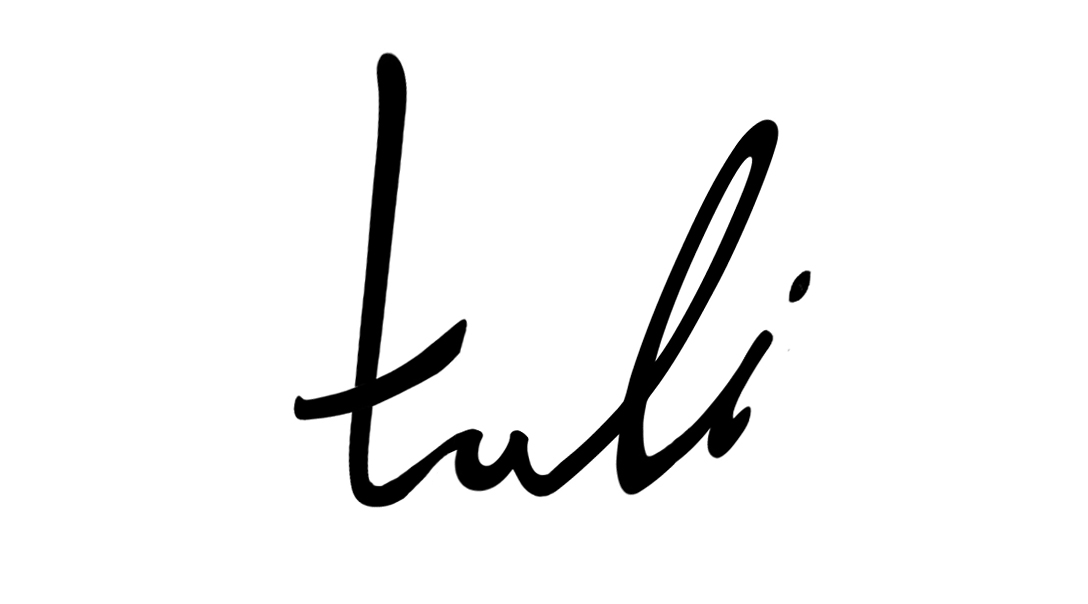Five years ago, I was back home for a visit, hearing from mentors and former professors how I was wasting my potential by starting Tuli. They may have had a point: I had a career I’d worked hard for and I was giving it up to start a social enterprise in the grueling, saturated fashion industry. It didn’t exactly scream “most likely to succeed.”
But this month, Tuli marks five years of creating life-changing work for our partner artisans in East Africa. We’ve fought to create brand awareness in a noisy market, agonized and then triumphed over the unique logistical challenges of sourcing from developing countries, and most importantly, watched people’s lives change.
Here’s what I’ve learned along the way:
Own it. I really had no right starting Tuli. My background was journalism, not business. After I started Tuli, I was supporting myself as a freelance journalist and model, so when people asked me what I did, I kind of mumbled something noncommittal about those three things. Once I got the confidence to own what I was doing with Tuli, people started to believe in it too, and opportunities began to follow.
Tuli’s goal is to break the cycle of poverty. By exporting their traditional crafts to a global market, we build a business with, not for, skilled artisans in Uganda and Kenya. This provides them enough of an income to support their families and send their children to school. Our artisans have jobs as long as they need them, and their children? With the ability to go to school through university, kids like these ones are able to enter the job market and won’t ever need organizations like ours. We view this as a long-term, sustainable solution that will break reliance on foreign aid, which so far has not solved anything.
Focus on your why. Starting a company is hard, and fashion is a tough industry. Retail space is competitive and ecommerce is crowded. We’ve had a seemingly endless stream of unexpected problems, and I’ve wanted to give up more times than I’d like to admit. But I truly believe that social business can change the world, and I’m fully committed to sustainable solutions to poverty. One of the chief injustices of the world is that your life and opportunities change drastically based on which country you’re born in. My access to international markets is something I can share with the tenacious and talented people Tuli partners, and doing so has created huge change for them. Focusing on Tuli’s life-changing impact keeps all of us going.
Progress, not perfection. I’m so proud of Tuli and everything our team has accomplished, but my list of things to tweak and improve is infinite. If I’d held out until every last detail of our website and branding was perfect in my eyes, I’d still be waiting to launch Tuli. We’re run by a small team, so we do what we can, but we’ve created impact beyond our wildest dreams in the last five years, and that never would have happened if we’d been stuck chasing perfection.
Never say no. We’ve had requests come in from buyers and clients over the years that we couldn’t meet, based on our tools at our workshops or based on our company’s policies. Instead of saying no, find other options — some of Tuli’s biggest deals were closed that way.
Always question yourself. I started Tuli because I’d seen a lot of nonprofits and social enterprises try and fail to enact change. I thought I had a better solution: Creating long-term, steady jobs without the expiration dates common in other social enterprises. However, I didn’t just accept that my idea was right. I constantly check in with my teams in Uganda and Kenya to make sure their lives are truly changing, that we are meeting their needs, that we are making an impact. I let Tuli’s leadership in East Africa tell us what the team needs instead of guessing, and back in the US, I’m constantly reevaluating our sales and growth tactics. There is always room for improvement, even on our best ideas.
I’m so grateful to everyone who has followed us on this journey, whether you learned about us five years or five days ago. I can’t wait to see what the future has in store for us. What do you want to see from Tuli as we grow? Send me an email and let me know!



